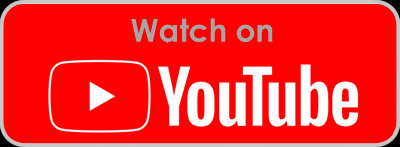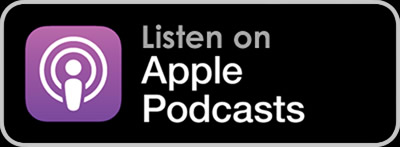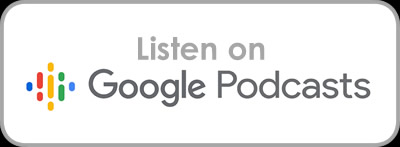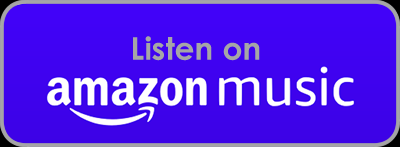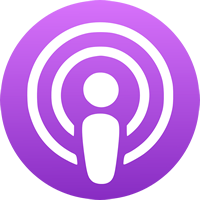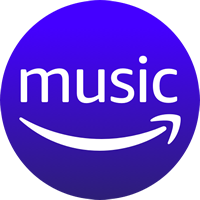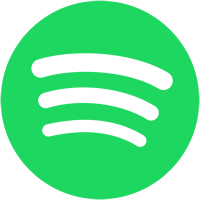Apple and Facebook are fighting again! This time it’s over ads and user privacy. Apple is rolling out its iOS 14 updates with a privacy change that could result in Facebook experiencing a significant cut in its advertising revenue.
Today we’re discussing what impact this has on you as an advertiser or as a publisher – and what you need to do about it.
Joining me today to discuss that is a man who’s been a leader in the online ads industry for the past 20 years. He’s a former Head of Biddable Media at Cheapflights and the current CEO of Spades Media and the Founder of Elite Media Buyers – welcome to DMR – Jim Banks.
Key questions covered in this episode:
- What issues do Facebook have with iOS14?
- Why are Apple doing this?
- What kind of impact will this have on users?
- What kind of impact will this have on publishers?
- What do publishers need to do?
- What kind of impact will this have on advertisers?
- What do advertisers need to do?
- What other changes are we likely to see in future iOS versions?
Audio recording:
Full transcript:
David Bain 0:00
Digital Marketing Radio Episode 232, iOS 14, Apple versus Facebook and the impact on advertisers and publishers
Bot 0:09
Digital Marketing Radio with David Bain.
David Bain 0:14
Hi, I’m David Bain. And this is Digital Marketing Radio, the show for in-house agency and entrepreneurial marketers who want to stay on top of the latest tools, tactics and trends shared on this very show by today’s modern marketing masters. app on Facebook are fighting again, this time is over ads and user privacy. Apple is rolling out, it’s always 14 updates with a privacy change that could result in Facebook experiencing a significant cuts in its advertising revenue. Today, we’re discussing what impact this has on you, as an advertiser or as a publisher, and what you need to do about it. Joining me today to discuss that is a man who’s been a leader in online ads industry for the last 20 years. He’s a former head of biddable media at cheap flights, and the current CEO of space media and the founder of elite media buyers. Welcome to DMR. Jim Banks.
Jim Banks 1:08
Hi, David, good to be here.
David Bain 1:09
Good to have you here. Well, thanks for joining us, Jim, you can find Jim over at EliteMediaBuyers.com. So Jim, what’s happening here? What issues do Facebook have with iOS 14?
Jim Banks 1:19
So I think the first the first thing to say, David is that Facebook and Apple, unlike a lot of these companies, these big kind of tech companies, they don’t really like each other, right? I mean, I’ve been sort of listening to, to kind of Facebook’s view on how Apple are dealing with things. Really since sort of like last summer, I think it was sort of June they started it rolling out some of these changes that they were kind of putting in place. And I think, you know, I think it’s been like very, very apparent that they really don’t like each other. And I think in some respects, it’s, it’s almost like as much as Yes, it’s about privacy. Right. And privacy is important, right. And it’s and, you know, Apple are not the only people that are kind of trying to do something about this. I mean, you know, Google and consortium are trying to do something called a federated learning of cohorts to try and sort of, you know, make it so that people are no longer sort of being able to be targeted at such a granular level, right. But advertisers still can kind of do some degree of targeting. So there’s a lot of work being being done by a consortium that includes Google, but it also includes other people, and I think really kind of Apple have sort of been sitting out on their own in isolation. And as much as people think this kind of Facebook versus apple and iOS 14 is the only kind of thing that is is actually an issue. Really, it’s it’s kind of like it’s a much bigger, longer term issue. I mean, Chrome are changing, they’re sort of and I think, really what the idea behind it is, it’s really the death of the kind of third party cookie, right? I think that’s, that’s really where ultimately all of these changes are, are heading. And it’s really just a case of how big tech companies can actually provide an experience that’s good for a user. It’s good for them. And it’s good for the advertisers. And the publishers are kind of like this four components that kind of make up the experience. And they’re trying to find something that’s good for all four components. Right. And unlike Google, have been talking to other people, they’ve been talking to advertisers talking to publishers talking to, you know, other sort of, you know, marketing partners, right, really kind of Apple, they’ve been doing this completely on their own, they haven’t really been talking to anyone. And I think that’s probably why Facebook took as much umbrage as they have with this kind of rollout with the IRS 14 kind of update that, you know, I think it’s sort of it’s, it’s gone in stages. And I think the next stage is due to take place sometime they call it in early spring. Right. So that should really be probably sometime, I would guess, next month. I mean, I have heard the date of the 22nd of March banded around, but you know, again, it’s like it could be pushed back. I mean, who knows? It’s a bit like, you know, the lockdown and tears and noises. So who knows what’s going to happen, really?
David Bain 4:02
So just for historical context, we’re recording this on the 24th of February 2021. And what’s happened recently is Facebook have in Australia, decided not to display the content from the various news companies there, and then they’ve done a back turn on that. So we’ve certainly seen a lot of tech companies flexing muscles recently. Do you have any opinions as to who’s in the writer who’s in the wrong about what’s happening to Facebook apple at the moment?
Jim Banks 4:34
Yeah. So I think that the thing is, I think if Apple had said, we’re concerned about privacy, right, and you know, and left it at that fine, but they said we’re concerned about privacy. And then they said, People need to switch their browser to kind of use Safari. And they said that really, if you want to kind of like get news, you should use Apple news. Right? And really, all they’ve done is all the suggestions that they’ve made around privacy have been too Do with switching kind of like your allegiance to Apple related products? Right? And in some respects again, if you look at it, that they’re they’re big publicly traded companies, right? They have a kind of obligation to shareholders, they have an obligation to kind of grow their revenue base, right. And if you think about kind of where they’ve gone with the iPhone, right, they’ve kind of, again, I don’t know where they can go with the kind of the evolution of the telephone technology, right? I mean, it’s kind of like, yeah, I mean, I’m sure that there’s a lot of people that regardless of what changes they make, as soon as they come out with a new iPhone, they’ll get one, right. It’s almost like you’ve seen, it’s gone from small devices to big devices. And now they’re going back down to small ones, right? And then they’ve got these sort of ones that you flip in half and, and everything else. But again, I think the evolution of that is coming to an end, right? And they’ve gone right, well, where where’s our next kind of big chunky revenue going to come from? And I think they’re, they’re obviously seeing that in the ad space. And they’re also seeing that in terms of revenue from the App Store, right. And I think that’s really what they’re trying to do is they’re trying to sort of almost like force the conversation in favour of them,
David Bain 6:06
it would certainly be interesting to have a lengthy conversation about Apple’s strategy, whether or not it’s actually trying to keep people in its ecosystem. I’ve heard stories like them not willing to bring in other default messenger apps apart from their own in iOS as well. But that’s probably a lengthy conversation in itself. So let’s talk about iOS 14, specifically, and what’s happening between apple and Facebook and the impact, obviously, that’s having on advertisers and publishers, so shall we starting publishers, first of all, what what kind of impact is this going to have on publishers?
Jim Banks 6:39
Yeah, so I, again, I think, I think the way that sort of publishers historically mean, some of the changes that that have have been sort of, like talked about have been already kind of rolled out, right. So I think, you know, again, like the, that there is a massive kind of, you know, developer base of people that have developed apps, and they use Facebook as a kind of means to monetize their app proposition. And that’s quite often done through in app purchases, or subscriptions, you know, or people, you know, tearing up and levelling up in, you know, games and things like that. Right. And again, it’s like, if they’re losing the ability to kind of track at a granular level, where people have got to, in a particular experience, their ability for them to be able to, you know, personalise the experience, and monetize it is going to change. Right. So I think, what what is effectively happening is they’re moving from, you know, this sort of hyper, hyper granular kind of targeting capabilities that, you know, really, I think a lot of advertisers and publishers have kind of done well, from right to this, it’s much more kind of, it’s going to be aggregated now, right? It’s going to be delayed. So again, you’re not going to get data in real time, it’s going to be delayed, right? Because again, if you think about it, if they know in real time what is happening, then they can actually say, well, that’s actually David playing on his iPhone, in the toilet, or whatever it might be right, they will know who you are. So what they’re actually doing is they’re going to delay between towards the kind of the firing of conversion events between sort of 24 and 72 hours, right, and it’s going to be random. And they’re only going to really pass back the kind of the most important conversion event, right. And that’s on both the advertiser and the publisher side. Right. So, so obviously, on the publisher side of things, their ability to, to kind of monetize, will, will need to change, right? And they will, they may well need to kind of look more at kind of in app purchases as the way in which they can kind of monetize their, their experience rather than what they’ve had sort of historically.
David Bain 8:36
Okay, got you. So perhaps Apple will, again, driving people in further into their ecosystem, including publishers as well as users themselves. Yeah. What about them? The future strategy of advertisers? Is this going to impact the way that advertisers actually currently conduct campaigns?
Jim Banks 8:54
Yeah, so So I think the the ability for people to kind of do granular targeting is going to kind of change, right? So if people opt in, so what’s happening is, is that they’re going to have to kind of like, when they when Facebook, sorry, when Apple put this push this next mechanism out, I can’t think what is called att, I think it’s a kind of the shortened version, whatever att is. But basically,
David Bain 9:20
it’s an app app tracking transparency.
Jim Banks 9:22
That’s it. Yeah. So So yeah. So So what will happen is, is that people will have the option to opt in, right? Because historically, all of these sort of mechanisms have been opt out. So people can say, Hey, you know what, I don’t want you to track me. Whereas now people actually have to expressly give an app permission, right for them to be tracked at a kind of granular level. And if people actually say, No, I don’t want that. Right, then you cannot track those people that you won’t be able to kind of include them in audiences and everything else. So what will happen is, is that your ability to create audiences that are sort of hyper granular will diminish, right so the audio sizes that you have will be smaller. Right? That the the days of you being able to kind of optimise to certain conversion events. So again, it used to be, you could optimise to somebody viewed your homepage or somebody downloaded an ebook or somebody, you know, added a product to the cart, somebody initiated a checkout, right or somebody made a purchase, those all of those could be sort of treated as a conversion event and you can optimise campaigns towards those. What will happen now is that you’ll actually only be able to optimise to one event, right, so you have to kind of choose, which is it’s almost like you have to kind of choose which one of your children you want to save. Right? It’s like there’s going to be sort of one conversion event that you can optimise on, right and get reported on, right. And everything else is going to be just kind of like aggregated, so you know, they’re going from kind of granular kind of reporting, and attribution to not very granular reporting at all and a lot of guesswork.
David Bain 10:56
What would this mean for retargeting, because, obviously, if someone hasn’t made a purchase, and they may have done something like, add a product to a cart, or spent a certain length of time on your website to indicate that there are perhaps a likely customer in the future and you want to do a retargeting campaign, but your main call to action that you’re tracking a year sale is not what you’re tracking that user is doing. So will it impact retargeting in any way as well?
Jim Banks 11:22
Yeah, it’ll impact it dramatically. And obviously the only people that you will be able to to remarket to other people that are not on iOS. And I think a lot of people are confusing. They think iOS is just the kind of the mobile and like iPads, right? But But the way that Facebook that basically have the choice, they could either kind of like not show this, this, you know, this att prompt, right. Or they could actually continue to kind of collect the idea phase, which is the kind of the device ID for iOS devices, right. But that kind of applies, that then means it applies across all devices. So it’s not just the activity that happens on iOS devices. It’s it’s basically all devices, so so even if people are doing web based activity, this this kind of change will also impact that as well. And I think that’s the certainly one when I’ve been reading this has been the biggest kind of things I’ve disagreed with most of the people that are talking about this is that they think this is only going to apply to iOS devices. So it’s only going to say it’s only going to be like seven or 8% of my traffic. So it’s no big deal. Right? This is a huge, huge issue, right? Because this this will impact your ability for all devices. So the only people that you’ll be able to remarket to will be people who are on Android devices, and also people who are opted in, right, which again, at this particular point in time, it’s a bit of a coin toss as to what that number is. Right? It could be very low could be very high. It really depends. I mean, if they, I think what they’re trying to do is they’re jockeying to see whether they can use different wording, right, because I think the apple wording is very kind of smack you in the face. And I think Facebook wants to use something that’s a little bit more, you know, we want to kind of like, again, what they want to say is, if we don’t, if we don’t allow you to opt in, right publishers will probably again, I think the the upshot will be if people opt out, right, what will happen is that publishers will need to find a different way to monetize their app, which will probably be in app purchases, and like the people, the things that people are getting for free now, right news and everything else they’ll probably have to start paying for right. So ultimately, I think the end use of the end user in all of this is the person that the party that will probably lose out the most, right? I think the end user is going to be the people that will that all of the kind of nonsense between Facebook and Apple is going to be passed on to the end user who’s going to end up paying for things that they can rely on for free now, which is like the, the Facebook, in Australia, you mentioned it kind of earlier on, it’s like, if ultimately Facebook and News Corp have to sit down and negotiate a rate for Facebook to pay newscorp for the news that they have, right? That money is not just going to come from like the ether that’s gonna have to become that’s gonna have to come from somewhere. Right? So they’re gonna have to be a little bit sort of mindful about how they actually, you know, how they actually monetize it. And again, I think if you look at it, we’re almost like, I know that we are in a bubble at the moment, but it’s like, I think Facebook odd desperately kind of worried that once the pandemic ends and people come out of lockdown, that their reason to kind of stay at home and be on Facebook will disappear. I think I think a lot of people are predicting that once the the kind of the pandemic ends that the daily average use on Facebook will diminish like a lot, right? I think that the kind of the daily average users will will plummet. Right? Because I think again, I think a lot of people kind of checked out certainly in America, they checked out of Facebook because of all the political advertising and nonsense that was going on there. You know, it’s become a platform that they think doesn’t really kind of resonate with people and I think a lot of people have switched to tik tok and they switch to switch to Snapchat, and obviously switch to clubhouse. So it’s
David Bain 15:00
So you talks about the users perhaps being the ones that lose out in the end? And is it not just particularly annoying, though, for users to visit a web page, and every single time they visit a new website, they see a pop up to say, you know, allow cookies or these new tracking mechanisms that app we’re talking about there as well. Is that not just bad for user experience?
Jim Banks 15:21
Yeah, I think, again, I think, you know, if you think about it, I mean, like, I’m actually one of these people. If, if I have the option of accepting cookies, and getting a personalised ad experience, versus getting a bad experience, it’s not personalised, I’ll take the personalised ad experience every time, right, because then that way, right, I’m going to get something that will be more relevant to my interests, rather than just random ads, it’s like, the ads are not going away. Right. That’s not that, you know, the ads are still going to be there. Right. So the best thing that I think we as users could do is just accept the personalised ads, because it helps to keep the internet free. Right. Like I said, a lot of the kind of tools and services that we rely on now, right, ultimately, if we don’t kind of, you know, address this properly, we could end up having to pay for things that, you know, that we can get get for free now. Yeah, right. Again, I pay a subscription to medium, right. And really, that’s probably the only sort of news source that I pay kind of for, for my news. But again, I mean, there’s a lot of who are in the pandemic, because, you know, sites that were providing kind of, you know, important information to the public, we’re going hey, you know, this is kind of behind a paywall. If you want to read this article about which hospitals are open for this, right, you have to kind of pay money, and it’s just like, Well, no, I’ve got somebody that’s ill here, I need to take into hospital, you know, and they need the information to kind of be readily available.
David Bain 16:44
So just back to what you’re talking about a second ago, in relation to retargeting? Will it then be the case that in the future that you want fire a script or tracking scripts on every page in your websites, and it’ll only be necessary and best practice to fire a script on the pages or the steps that you wish to track?
Jim Banks 17:06
Yeah, I think I think what will happen, David, is that, eventually, I’m not sure what timeframe, I mean, this may well be when kind of Google rolls out, it’s, it’s kind of flock or turtle, double, whatever they’re kind of calling it when they implement their kind of solution for Chrome, right, I think what you will probably find is that there will be trusted, trusted third parties that will have scripts that kind of sit server side that will fire the information that needs to happen, right, it’s really just a case of you know, it, the information will be important to kind of say, Well, this is a returning customer, right. But we need to be able to kind of have a way to protect people’s information. without it being you know, this is, you know, David, he’s this age, he’s this gender, he lives in this area here, and this money drives this car, you know, he’s got this many children, all that sort of stuff. I think a lot of that will kind of go away. And I think what will probably happen is that on websites themselves, and in apps, there will be no tracking codes, per se. But what will happen is on the server side, that kind of codes will be able to say, you know, based upon this random ID, and this random ID and this random ID, we can kind of say that this person is in this bucket, right? And again, they’ll they’ll have the ability feasible to, to put you in a bucket without actually knowing that it’s you that is being put in that bucket.
David Bain 18:28
So is there anything that advertisers need to do right now to change the way that they’re going about running their campaigns? Or is that case of actually just sit and wait to see what happens and be prepared to change over the coming months? And years?
Jim Banks 18:40
Yeah, so I mean, there’s definitely some suggestions that Facebook recommend that people take, and one of them, one of the first things that they need to do is to verify the domain that they use for their ads, right, because, you know, effectively, you can have a certain number of events per domain or per port per ad account, but it’s also per domain, right. So, you know, if you’re running, and again, this is probably more of more of an issue when you have businesses that are kind of enterprise businesses that have maybe, you know, seven or eight different, you know, different countries that they might send traffic to. So again, it like, like, as an example. So you mentioned like, when I worked at cheap flights, so cheap flights, we had stuff running in South Africa, we have suffering in Canada, and if people were in Canada, and they sort of kind of pages in, in the UK, we would redirect them to the UK site. And obviously each if you have one domain, only the domain that you have, so in that case, it would be cheapflights.ca. That’s the only domain that Facebook would basically say, well, we’re only going to track information for that domain. So it’s important that you you kind of structure your campaigns properly, to make sure that the the you know, the events that you’re able to kind of track are tracked correctly. Right. And again, they put it in every ad account. They We’ve added a resource centre. And if you go in there, you know, the instructions will be there in terms of what steps you need to take, right. And definitely the things that you can be doing like right now are, you know, verifying the domain, checking that the, there’s no sort of domains that are not the ones that you want to kind of find your pixel or in it, right. And, and again, I would probably suggest that you kind of create either a whitelist, or a blacklist, depending on whether there’s more of one than the other to kind of say, Well, this is the only domain that I want to kind of track in that particular account. And the other thing I would sort of suggest is that obviously, we’re moving away from having lots and lots of choices in terms of attribution windows, I think, again, if I, if I was an agency that was was relying on Facebook’s data, for my remuneration, I’d be really hard at the moment, right? Because obviously, you know, all the all the conversions that happen when people leave Facebook and go somewhere else, right, Facebook will still claim credit for those under the current rules, and all of those sort of like third party sites that people visit, Facebook will just stop tracking those by virtue of this sort of aggregated and sort of the way, the way that kind of configurations going to be done.
David Bain 21:13
So going back to domains, if you’re working for a big international firm with maybe 50 different countries sites, which and they were maybe thinking of redeveloping their website, we would actually be tempted to suggest that they moved to a.com to cover all all countries, and then simply redirect the country domains to a folder on the.com.
Jim Banks 21:34
Yeah, cuz I think I think what’s happened with with a lot of businesses is that they’ve ended up with like, you know, multiple business managers and multiple agencies managing their accounts. Right, and it’s going again, I think they need to kind of, you know, trim down a lot of the kind of the excess fat that they got on their, their business manager account structure, and make it sort of, it’s pretty lean, and kind of pretty mean, right. And again, I think on developers.google.com, they did a kind of webinar just a couple of days ago, where they talked about the kind of the way in which you should try and configure those sorts of situations. So again, if you’re an enterprise business, that, you know, that has that kind of complexity of multiple, either multiple, you know, lines of business or business, business managers, you know, multiple agencies, you need to be a little bit more careful about the way in which you structure it, because you’ll run out of the ability for you to be able to kind of track the things that you want to track pretty quickly. Great stuff. Okay, well,
David Bain 22:31
let’s segue to part two of our discussion. So stay tuned for Jim’s thoughts on the state of digital marketing today. So starting off with SECRET SOFTWARE, so Jim, share our lesser-known martech tool that’s bringing you a lot of value at the moment and why that tool is important for you.
Jim Banks 22:45
So the took the tool that I use fair a fair bit and I’m whenever I talk to people they go, I didn’t realise use that is it. Again, it’s probably I say it’s a marketing tool. But But Hemingway, right, so Hemingway is like a sort of an app that I use, that helps me to kind of write better quality words, right. So what it will do is it will take a particular phrase or sentence, and it will make suggestions. So it’s, you know, it will make suggestions for ways in which you can kind of rework things, right. So. So again, like if, if your writing style is too wordy, it will make suggestions as to how you can kind of make it smaller, and it’ll kind of give you adjectives to remove and, you know, change tenses and things like that. So for me, it’s been really helpful. Whenever I’ve written stuff, I’m like, I’ll just throw that into Hemingway. And it’ll come up, come up with some good suggestions as to kind of what you can do to kind of make it more readable for the audience that you intend it to be read by
David Bain 23:44
sounds like a great tool, but I haven’t tried it out yet. So I love hearing about tools I haven’t tried yet as well. But let’s move on from something that you currently use to something that you’re going to use. So NEXT ON THE LIST. What’s one marketing activity or tool that you haven’t tried yet, but you want to test soon.
Jim Banks 23:58
So this is a good plug for our friend Dixon. So in links, I’ve been talking to Dixon and inlinks is definitely something that I think would be beneficial for, for my business and also for my clients.
David Bain 24:10
Great stuff. Okay. Yeah, you can find Dixon site over in Lynx dotnet. And I host a monthly show for them, as well. So you can find that always nice
Jim Banks 24:18
to see him on his feet as well, right?
David Bain 24:20
Oh, absolutely. It was scary. What happened to he came off his motorbike and he’s cracked his pelvis, didn’t he? And it was Yeah, wasn’t sure as to you know, what that would mean in terms of visibility to walk in the future, but he’s just doing so well at the moment. So great to see. Yeah, so let’s move on to this or that round. So this is the quick response, right?
Jim Banks 24:40
I hate I hate this round whenever I’ve seen any. Anyone else on my on? No, not that one. But we’ll go out a dog. I
David Bain 24:46
definitely don’t prep people in these 10 quick questions to Just 2 rules here. Try not to think about the answer too much. And you’re only allowed to see the word booth on one occasion. So use it wisely. Are you ready to go? Okay, I am. Tick Tock on Twitter. Twitter, Facebook or LinkedIn, Facebook, YouTube or podcast,
Jim Banks 25:08
YouTube
David Bain 25:09
traffic or leads? leads, paid search or SEO,
Jim Banks 25:16
paid search
David Bain 25:17
ads or influencers? ads, Google ads or Facebook ads?
Jim Banks 25:24
Both email
or chat at once. Right once Yeah,
David Bain 25:29
yeah, exactly. Yeah, email or chat, email, more tech stack, or all in one platform,
Jim Banks 25:38
all in one platform,
David Bain 25:39
and one to one or scale.
Jim Banks 25:44
Scale
David Bain 25:47
he got there. And obviously Google ads or Facebook ads was the biggest challenge there was. So is that because you try and use them both for most companies that you work for, or the right for different situations, and maybe even give an example of what situations better for each platform?
Jim Banks 26:04
I would definitely say, budget permitting, if they have the ability to kind of run on both? I think they should. I think again, I think there are a lot of like, Facebook only agencies. And to me, I think we’re missing opportunities, if that’s the kind of model that people were employing, because again, I look at it and go, there are the people that that you are trying to target are not spending their entire life in the Facebook ecosystem. Again, even though here in the UK yesterday. And in Canada, the kind of Facebook have pushed out Facebook shops, which gives you the ability to kind of buy products on Facebook without actually having to leave the Facebook ecosystem. But again, this this kind of older people have had conversations about, you know, buying stuff on Amazon. And that obviously ties you to kind of one brand, which, which isn’t good. But again, I think a lot of people may start there, that kind of journey, at the sort of top of the funnel by, you know, doing a sort of a more holistic kind of searching, maybe Google, they may go on to Facebook, you have the ability to kind of retarget to them again, currently, right that they all change with the kind of the new rules, is that going to come out? Right? But currently, you can retarget people who have seen an ad on Google in Facebook, equally you can retarget people that have seen an ad on Facebook in Google, right? So I think if you’re not if you’re not sort of following the breadcrumb trail of where people end up, right, then you know, you’re missing out on opportunities to kind of continue a conversation that you may have started on one platform and sort of conclude on another.
David Bain 27:32
Yeah, it’s a great point, if you’re a Facebook only agency, in terms of Facebook ads is all you do in terms of helping clients. So yeah, and
Jim Banks 27:39
I think the thing is, David, it’s like, you know, the reason that the Facebook ad agencies don’t really care is because of the way the facebook pixel and SDK attributes the sale, right? Even if they convert on Google, right, by typing in a particular search term, right, Facebook will still claim credit for that sale. Right? But But ultimately, if you think of it from an attribution perspective, right, Facebook should not be getting all the credit for that sale, because they were not the only channel that converted that particular visitor into a sale. Right. So if you don’t actually distribute your, the money that you’ve got collected from a sale kind of correctly, then you’ll end up kind of rewarding one channel all the time and punishing the other. Right. So you know, if you if you say, we’ll get to give all the credit to, to Facebook, then ultimately, what will happen is people will just say, Google’s not working for me, I’m going to switch it off.
David Bain 28:29
Are you a fan of a particular type of attribution model?
Jim Banks 28:32
Yeah, I mean, I, again, if you have the data volume sufficiently, again, I like Facebook, attribution is a great tool, great product, we use that a lot. Also, Google attribution is a good tool, we use that a lot as well. And it gives us the ability to actually look at the different models that are available, right in the Google ecosystem. If they if you’ve got enough conversion data for you to have a data driven attribution model, then that’s definitely the one that we would we’d like to see, right. Failing that we prefer a linear model. You know, I don’t like last last pick, I don’t like first click, right, linear just kind of rewards each each step in the journey, kind of like in a in an equal proportion. So if there were five touch points, or let’s say it was a Google search, YouTube ad display, you know, Google search, each gets 20% of the conversion value, rather than, you know, all of the conversion value getting attributed to the last touch point. And then Facebook, again, like, you know, we’ve always kind of earned on the side of caution. So we’ve always kind of gone either seven or one day click right, which again, some people are well, that’s that’s, you know, you’re missing out on sales. It’s like, Well, no, I mean, in most cases, the clients that we work with, right, if they’re selling product, then, you know, typically the conversions, you know, 80 90% of the conversions take place within that sort of first day, right. So if you’re running a 28 day conversion window, right, then, you know, it’s typically going to Two or three touch points that will get people over the line, not that first one. Right. So I think, you know, if you’re if you’re sort of like leaving the kind of the clock running all that time, then you’re going to give credit to that first touch point rather than the sort of the third or fourth touch point. If it’s taking place 25 days after the event,
David Bain 30:18
there’s a conversation in itself when we could spend the whole topic of attribution certainly, and,
Jim Banks 30:25
and again, I think that the thing with attribution is, is in most cases, most businesses that I see, the only reason they have heated discussions about attribution is it’s due to recognition and reward. Right? So the SEO team wants to take credit for everything. The email team wants to take credit for everything the messenger team want to take credit for everything, right. But there’s not been seven sales, it’s like one sale, you need to kind of decide internally kind of how to kind of proportion that that money. Okay, well,
David Bain 30:53
let’s move on to the next section, which is the $10,000. Question, if I were to give you $10,000, and you had to spend it over the next few days in a single thing to grow your business, what would you spend it on? And how would you measure success?
Jim Banks 31:05
I mean, again, at the moment, obviously, with with lockdown, I would say it would be difficult to do. But there are definitely some sort of masterminds, that I think if I had the opportunity to kind of spend 10 grand to go to one of them, I would spend 10 grand to go to a mastermind to get the opportunity to kind of rub shoulders with, you know, with people that could kind of really add value. Again, I read a great book recently called who not how, which is written by a guy called Dan Sullivan. And really, that’s that’s kind of, you know, you have people that come up with a vision, and you have people that will can then execute that vision. So I think for me, it’s really just a case of, you know, again, I think if you could go to a mastermind, you could find it an awful lot of house to kind of get stuff done. So you could kind of have the idea and then have people can kind of implement it for you.
David Bain 31:50
And how I mean, I can certainly understand the value in investing your money in that. But how can you measure the effectiveness of doing that?
Jim Banks 31:58
Yeah, that would be that would be kind of probably tougher. Again, I think I think some of the, the, you know, a lot of people have talked about influence marketing. And it’s probably one of the channels, that’s the least trackable. And again, I think I think we’re moving into the realms of everything. We’ve had the kind of the halcyon days of everything being able to be tracked at a really granular level. And I think what’s obviously happening now is we’re moving away from that we’re moving into, to kind of it’s much more about kind of, you know, more holistic decision making and sort of strategy rather than sort of super granular stuff. Right. And so I think, for me, it’s like, you know, the, the, how do you actually measure that it would be sort of really driven by the sort of the vision, the vision that you come up with, for the business to enable you to kind of grow and accelerate it?
David Bain 32:46
Yeah, I think that’s great answer, you’ve got to accept that you’re never gonna be able to track everything and certainly moving forwards. You’ve probably got to be able to track a lot less than you did a couple of years ago, because of what we’ve just been talking about today.
Jim Banks 32:59
It’s going I don’t know.
David Bain 33:01
Maybe Bitcoin, okay. Okay, maybe maybe blockchain maybe, if whatever the future version of the internet is going to be? Yeah, okay. Well, let’s finish off the conversation with someone else who deserves it. So that is a MAGICAL MARKETER who’s an up and coming marketer that you’d like to give a shout out to? What can we learn from them? And where can we find them?
Jim Banks 33:20
Again, I think for me, I’m sort of like talking to you today about iOS 14, and apple and lots of stuff. There’s a guy called Eric seufert su Effie RT, and he’s he’s by far and away, the guy who I think has got the best knowledge and out and sort of ideas around kind of where this iOS 14 thing is kind of kicking in. He’s a prolific on Twitter, I think he’s got a kind of website mobile dev memo.com. I think it is. But again, I’ve really kind of taken to, to kind of listening to what he’s got to say. Because again, I think, you know, there’s an awful lot of people with an opinion, I’m just one of them. Right. But I think, you know, he’s got a much kind of better take in regards of how this potentially will impact things down the line.
David Bain 34:07
Wonderful. Okay. Well, you have been listening to Jim banks from Elite media buyers.com, Yahoo. In today’s episode of Digital Marketing, Radio, shout out a whole lot of value. And we had a great conversation of iOS 14. I love this specific tip about making sure your domain name is approved there that that’s something that users can do now. Your SECRET SOFTWARE, Hemingway. People can find that over at Hemingway app.com. NEXT ON THE LIST was inlinks dotnet. Great platform there as well from Dixon Jones, and your magic marketer was Mr. Eric Benjamin at seufert. I will make sure that everything that Jim mentioned to the show today and more will be listed in the show description over at YouTube and of course, the podcast show notes at Digital Marketing radio.com. Jim, what’s the best social platform for someone to follow you in to say hi,
Jim Banks 34:56
I would probably suggest Twitter. I’m a just at Jim banks on Twitter. I’m also kind of action banks on Facebook. Like, I’ve got just got gym bags everywhere.
David Bain 35:06
Okay, easy enough to find. Apart from that darn American senator or politician, there’s
Jim Banks 35:14
funny I’ve been I’ve been kind of like included an awful lot of his hate hate tweets. Here I’ve got a bit of rapport going because I get a bunch of stuff that’s really kind of like aimed at him. And I just kind of handle it in a in a very sort of diplomatic British way. So
David Bain 35:31
you’ve got all the handles and you have to compete maybe with Google and run, but that’s fun. Okay. Well, Jim, thank you so much for joining us today. Again, I’ve been your host, David Bain. You can also find me producing podcasts for b2b brands over at casting red.com if you want to watch the next episode live subscribe on the Digital Marketing Radio YouTube channel. Have you already listened to the show on Apple podcast, Spotify, amazon music, tell a friend is good to share. Until we meet again, stay hungry, stay foolish and stay subscribed. Aloha
Bot 36:04
radio.com radio.com
Digital Marketing Radio,
Radio Radio,
Digital Marketing Radio


